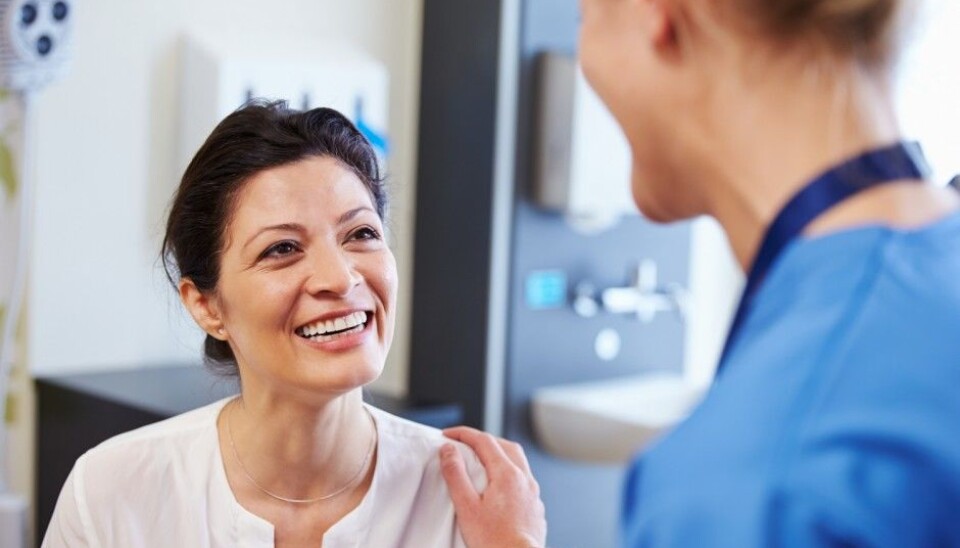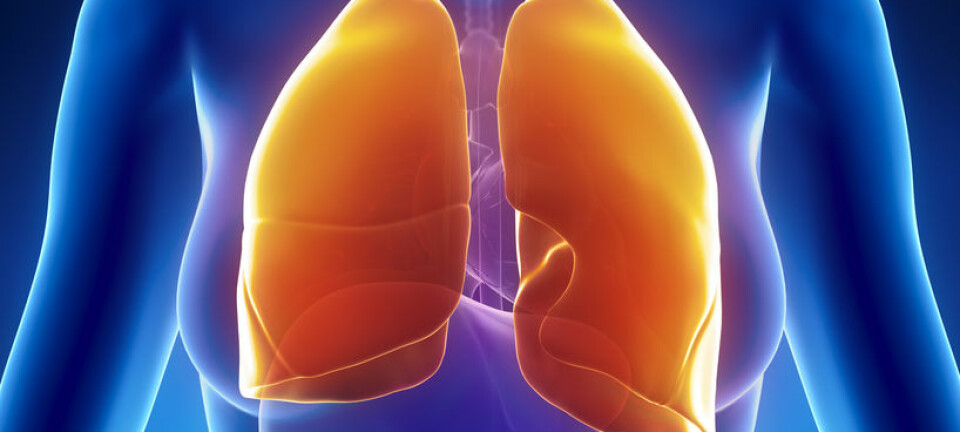
Far more women can safely take oestrogen supplements
Women run higher risks of heart attacks after menopause sets in because their oestrogen levels drop. More could be safely taking hormone supplements but a Norwegian professor asserts that women have been frightened from doing so by the media.
Young women are much less prone to heart attacks than men. Why is that? One reason is that the female hormone oestrogen protects the heart. Oestrogen gives women an advantage over men regarding infarcts and dying from them – until a certain age.
“Oestrogen leads to more beneficial fat mixtures in the bloodstream, with more of the healthy cholesterol and less of the unhealthy variety,” explains Professor Emeritus Ole-Erik Iversen of the University of Bergen.
High cholesterol levels of the unhealthy type increases risks of heart attacks [infarcts], as do factors such as obesity, smoking and diabetes 2.
Double risk of heart attacks without oestrogen
When women reach menopause their oestrogen levels plunge. This leads to unfortunate changes in the contents of their blood fats.
It makes the risk of heart attacks relatively higher for women over the age of 50 than men their age. In total, more women than men suffer infarcts, but their higher risk comes in old age.
Younger women whose ovaries are surgically removed prior to menopause, because of cancer or risk of cancer, run twice the risk of heart attacks, explained Iversen. His lecture on the role of hormones for cardiovascular disease was given at a recent seminar on women and heart disease in Oslo.
Dubious study triggered fear in 2002
Some 15-20 years ago many Norwegian women took hormone supplements to curtail afflictions linked with menopause. But in 2002 a study created shockwaves. The conclusion in the Women’s Health Initiative (WHI) study from the USA was that the risks linked to hormone supplements outweighed the gains.
The media blew this news up and tabloids warned against hormone supplements, citing the WHI finding that the medications increased chances of breast cancer.
“In retrospect we can verify that this was a false oestrogen alarm which unfortunately received far too much negative focus in the media,” says Iversen, who has spent years studying women’s health and hormones at the Women’s Clinic in Bergen.
He thinks the media reports caused unwelcome and unnecessary fear of taking hormone supplements amongst Norwegian women in their post-menopause years. Use of these hormones subsequently dropped.
A study from 2003 showed that 26 percent of Norwegian women used hormone supplements against various ailments after menopause.
Weaknesses in the WHI study
Iversen claims the study that triggered so much media attention regarding the risks of hormone supplements was encumbered with weaknesses.
“There was no difference in mortality from cancer among the two groups, even though the incidence of breast cancer was higher amongst those who took hormones.”
This is because nine out ten who get breast cancer survive it.
The average age of the women in the American study was also quite high, 63 years, which is considerably older than those who usually decide to start taking hormone pills for menopausal problems – generally a little over the age of 50.
The reason why the study was of women with such an advanced average age is that a wide search was needed to get 16,000 participants. Half took the hormone supplements and the rest were a control group who didn’t.
“Another vital difference found in the study was under-communicated. Far fewer of the women taking hormone supplements developed intestinal cancer,” stresses Iversen.
Intestinal cancer is a much more serious type of cancer than breast cancer, because fewer survive.
The study also showed that taking oestrogen supplements did not raise the risk of blood clots. But this was not of interest for the media.
New study received far less attention
A new study was conducted in Denmark in 2012 which moderated the risks of hormone supplements. Here the participants were in their 50s.
That study showed the oestrogen protects against heart attacks.
“Those who don’t take the hormone treatment run a higher risk of heart attacks,” emphasises Iversen.
But this too failed to generate so much media hubbub.
“The reason must be that the tabloid media is mainly fixed on news that is negative,” suggests Iversen.
A study from the Norwegian University of Science and Technology (NTNU) shows that women reduce their risk of dementia by taking the hormone supplements.
Five-year horizon
Iversen thinks that women who suffer physical complaints such as heat flashes in menopause can safely take hormone medications for five years from the age of 50-52.
“Then they can take a break from the medication and see whether they still have complaints. If they do, they can start using the supplements again,” says Iversen.
Nevertheless, the professor emeritus confirms that the hormone supplement was overused 20 years ago, especially among women over the age of 60.
“Usage was unnecessarily high then, but now the problem is that too few who have ailments are taking the supplement,” he says.
Reference:
[News about the female heart – from the mother’s womb to 80+. Seminar for health personnel and researcher. Norwegian Institute of Public Health, 7 June]
-------------------------------------
Read the Norwegian version of this article at forskning.no
Translated by: Glenn Ostling
































